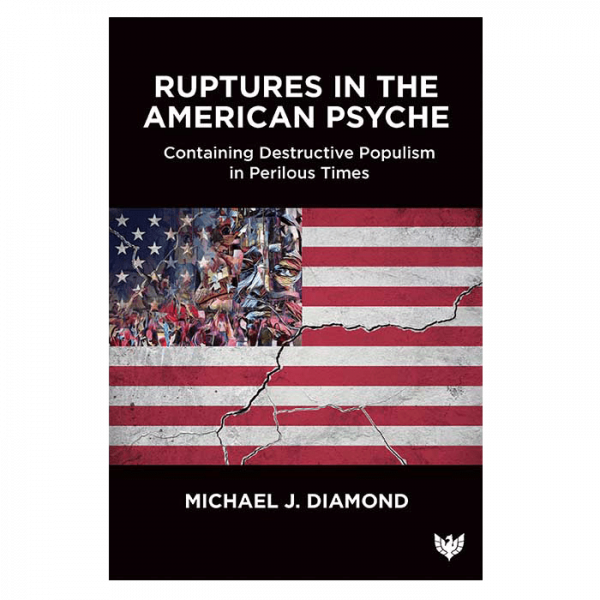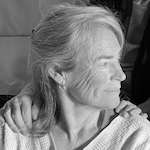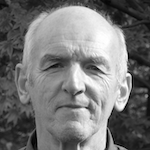Climate Psychology offers ways to work with the unthinkable and emotionally unendurable current predicament of humanity. The style and writing interweave passion and reflection, animation and containment, radical hope and tragedy to reflect the dilemmas of our collective crisis. The authors model a relational approach in their styles of writing and in the book’s structure. Four chapters, each with a strikingly original voice and insight, form the core of the book, encased either end by two jointly written chapters.
In contrast to a psychology that focuses on individual behaviour change, the authors use a transdisciplinary mix of approaches (depth psychology and psychotherapy, earth systems, deep ecology, cultural sociology, critical history, group and institutional outreach) to bring into focus the predicament of this period. While the last decade required a focus on climate denial in all its manifestations (which continues in new ways), a turning point has now been reached. Increasingly extreme weather across the world is making it impossible for simple avoidance of the climate threat. Wendy Hollway, Paul Hoggett, Chris Robertson, and Sally Weintrobe address how climate psychology illuminates and engages the life and death challenges that face terrestrial life.
This book will appeal to three core groups. First, mental health and social care professionals wanting support in containing and potentially transforming the malaise. Second, activists wanting to participate in new stories and practices that nurture their engagement with the present social and cultural crisis. Third, those concerned about the climate emergency, wanting to understand the deeper context for this dangerous blindness.







 Chris Robertson has been a psychotherapist and trainer since 1978. He was the co-creator of Borderlands and the Wisdom of Uncertainty, which in 1989 became the subject of a BBC documentary. In 1988, he co-founded Re-Vision, an integrative and transpersonal psychotherapy training with an ecopsychology component. He retired from Re-Vision in 2018. He was chair of the Climate Psychology Alliance, with which he still works.
Chris Robertson has been a psychotherapist and trainer since 1978. He was the co-creator of Borderlands and the Wisdom of Uncertainty, which in 1989 became the subject of a BBC documentary. In 1988, he co-founded Re-Vision, an integrative and transpersonal psychotherapy training with an ecopsychology component. He retired from Re-Vision in 2018. He was chair of the Climate Psychology Alliance, with which he still works. Sally Weintrobe has spent her professional life practising as a psychoanalyst. She is a Fellow of the British Psychoanalytical Society (BPAS), a long-standing Member of the Climate Psychology Alliance, and she chairs the International Psychoanalytical Association’s Committee on Climate Change. She was formerly an Honorary Senior Lecturer in the Department of Psychoanalytic Studies at University College London, and a member of teaching staff at the Tavistock Clinic.
Sally Weintrobe has spent her professional life practising as a psychoanalyst. She is a Fellow of the British Psychoanalytical Society (BPAS), a long-standing Member of the Climate Psychology Alliance, and she chairs the International Psychoanalytical Association’s Committee on Climate Change. She was formerly an Honorary Senior Lecturer in the Department of Psychoanalytic Studies at University College London, and a member of teaching staff at the Tavistock Clinic.
Bayo Akomolafe, PhD, author of These Wilds Beyond our Fences: Letters to My Daughter on Humanity’s Search for Home –
‘To the uninitiated, the waltzing heat of recent years, the melting ice sheets of recent fears, and blusteringly rude clouds outside our pristine windows, are matters of the outside. This book, however, is not a gentle tap on the door separating that outside from the gilded interior of modern subjectivity, it is a haunting within: the urgency to consider that the inside has always been exposed. It is a transdisciplinary invitation to recognise how we Moderns are aspects of an ethical/psycho-ecological/socio-material arrangement that has helped produce the calamities we now witness. There is no neat inside any longer; we are all undone. But, you see, the undoing – the timely gift of this book – is the initiation we all need.’
Donna Orange, PhD, PsyD, teacher, psychoanalyst and author of Psychoanalysis, History, and Radical Ethics: Learning to Hear –
‘These four eminent British climate psychology thinkers challenge us to think creatively, beyond binaries, to reach what they name the “eco-psycho-social”. This book is an engaging and important support to clinicians and to all trying to manage and think through our contemporary emergency in humane and ethical ways. We are in their debt.’
Professor Rupert Read, former strategist, spokesperson for XR, and author of Parents for a Future: How Loving our Children Can Prevent Climate Collapse –
‘Individualism, human exceptionalism, modernism (and its bastard child, postmodernism): this book dares to imagine a psychology that moves decisively beyond these fatal trends. Instead, we are offered fare badly needed: a social ecopsychology, the personhood of nonhuman as well as human animals taken seriously, an unembarrassed call to feel and show our love for this world. There is nothing less than a revolution in the offing, in the discipline we used to call psychology. This book indicates a way to (re-)imagine it.’
Mary-Jayne Rust, art therapist, Jungian analyst, ecopsychotherapist and author of Towards an Ecopsychotherapy –
‘Climate psychology is an emerging and much-needed field in our struggle to make the necessary changes to our dysfunctional relationship with Earth. This book offers a diverse range of innovative thinking that pulls together threads from the eco–psycho–social fields. It challenges the reader to find new ways of seeing and understanding our current eco social crisis which will hopefully inspire new forms of action.’
Dr Els van Ooijen, psychotherapist, ‘Therapy Today’ Sept 2022 –
‘This timely and important book comprises an investigation of the causes of the current climate crisis, common reactions to this existential threat and how therapists can help each other and their clients face reality and find a way forward. […] I heartily recommend this engaging and well-written book’
Mark Stein –
‘This volume is a refreshing and provocative contribution to an important area of concern. By the end of the book I was ever more convinced of the significance of climate psychology to our lives and felt that, in their different ways, the authors helped fashion both a deeper understanding of the problems and a way forward. It has encouraged me to think a great deal, to consider further my own implication in these matters, and to work harder to address these important, pressing issues. For this reason, I whole- heartedly recommend this book.’
Rita Teusch, PhD, The American Journal of Psychoanalysis, 2024, 84, (119–123) –
‘Eminent British climate psychology thinkers, share in this book their cutting-edge reflections about the current state of our world characterized by the calamitous eco-psycho-social crisis of the climate emergency. […] The authors understand that for change to happen, urgent action is needed. They suggest both active engagement and a more passive surrendering, being with or being still. […] This moving and innovative book ends on a cautiously hopeful note.’